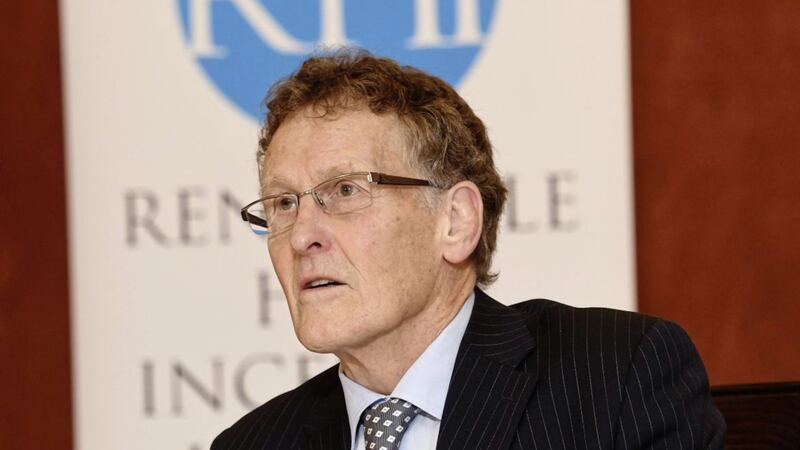The department that ran a botched green energy scheme has undergone a "major restructuring exercise", a Stormont committee has heard.
Colin Lewis, deputy permanent secretary at the Department for the Economy, said it suffered reputational damage over the RHI scheme which was examined by a public inquiry led by Sir Patrick Coghlin.
The probe looked at flaws in the scheme and its hearings focused on the roles played by politicians, their special advisers and civil servants.
A report from the inquiry is expected in the coming months.
Read More: Conor Murphy says RHI inquiry report nearing completion
The political row over the scheme led to former deputy first minister Martin McGuinness resigning, effectively collapsing the devolved government in January 2017.
Today, Department for the Economy officials briefed an oversight committee at the recently resurrected institutions at Stormont following the three-year absence of government.
Mr Lewis said the department has gone through a "major restructuring exercise" over the last 18 months, which he described as "necessary in light of findings arising from the RHI inquiry".
"It goes without saying that the reputation and credibility of the department has been severely called into question as a result of the inquiry, and the report will no doubt identify major failings in the areas of corporate governance and accountability," he told the committee.
"As you can understand, morale among our staff was not high and far below where we would want it to be.
"It falls to the permanent secretary and myself working in tandem with my colleagues to restore reputation. In order to do this, it is awfully clear that we are going to have to be better than everyone else and demonstrate significant improvement.
"A lot of work has already been done on this, we are not waiting for a report to come out, not least the fundamental reorganisation of the department."
The department's head of energy Richard Rodgers outlined to the committee the impact of the scheme.
"The position we then found ourselves in leading up to the end of the last executive was the first 1,700-1,800 were continuing to generate a lot more heat than expected and the adverse to the budget which was available to the scheme was projected to be, over the 20 years, around about £650 million," he said.
Mr Rodgers said regulations were introduced to reduce costs, adding that the amount of budget available for the renewable heat scheme now is around £30 million, and the amount currently used is £5 million to £6 million.
The most recent regulations introduced in 2019 are being challenged in the courts.
Mr Rodgers said around 2,000 live participants remain on the scheme, adding that Economy Minister Diane Dodds in her first week asked officials to look at proposals for the closure of the scheme.
"It's important to emphasise that it is not an easy answer because of the potential risk of litigation," he said.
Committee member and former education minister John O'Dowd said: "During my period of time as minister or serving on committees, I have found the vast majority of civil servants hard working and dedicated to making positive change in people's lives.
"If the RHI report identifies mistakes made by civil servants, and indeed politicians, they will have to be dealt with, but it certainly isn't a reflection of my experience working with civil servants."
Earlier this week it emerged that Finance Minister Conor Murphy has written to inquiry chairman Sir Patrick to ensure the report is not shared with him or his private office before publication, and that advance copies are only given to a limited number of named officials.






